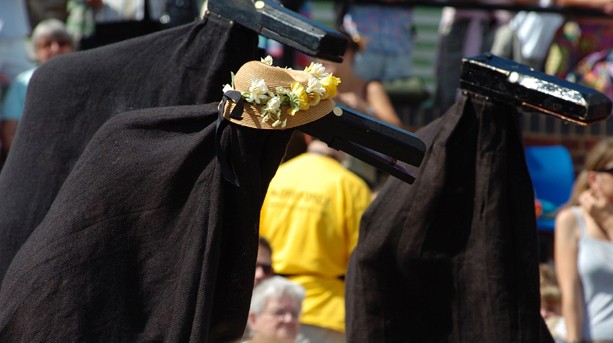
Apparently, it’s now the festive season. Lights adorn the shopping centres and high streets, having been switched on at various well-attended events; street fairs are bustling full of present-hunters browsing stalls selling gifts, knick-knacks, decorations, and obscure foods; every shop has the same playlist blasting out on a loop; and it’s time to open the first door of the advent calendar. Christmas is well and truly here.

Festivities in Thanet are, by and large, similar to the rest of the country, with one exception. Here, and only here, there is a group of hooden horse performers, the East Kent Hoodeners from St Nicholas-at-Wade, who put on an annual play across Thanet and East Kent. This odd local tradition dates back centuries and is a strange curiosity that only really takes place in this part of the world.
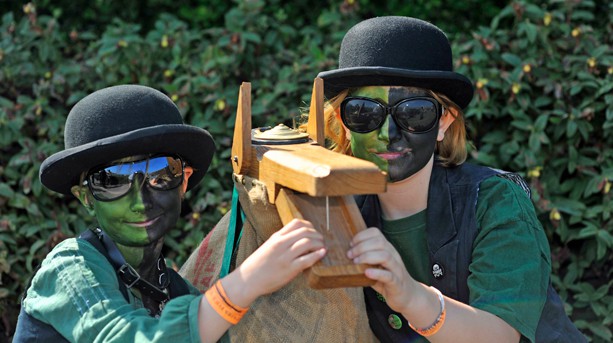
Hooden horsing will be familiar to anyone who has attended Broadstairs Folk Week. The players wear tights, place a horse’s head (either an actual skull or a wooden representation) atop their own, and are covered in a shroud. It is the symbol of Folk Week, and a well-recognised one at that. Every year they appear for that week in the summer, and then others surface around Christmas for the festive play. It happens only in a few places, anywhere, is called ‘hoodening’ exclusively in East Kent, and reportedly originated in and around Thanet.
It is also illegal.
Well, sort-of. Part of being a writer involves researching a lot of obscure and unusual topics, and during my investigations into hoodening I discovered – as many others likely have – that at some point in the early 19th Century, a local woman called Susanna Crow was frightened by a hoodener on Christmas Eve, which led to a terrible chain of events. She was heavily pregnant, and only 21 years old, and the sight of a hooden performer in Broadstairs scared her so much that, fainting, she fell and was severely injured. She later died of her injuries, which were reported to be intensified by her fear at the time.
The accounts of the matter then vary, but it is clear that the performers taking part in the offending parade that Christmas Eve were forced to give up the practice of hoodening, and any repetition of the act would result in prosecution. Some accounts also mention a formal ban being in place, enforced by local magistrates as a bylaw.
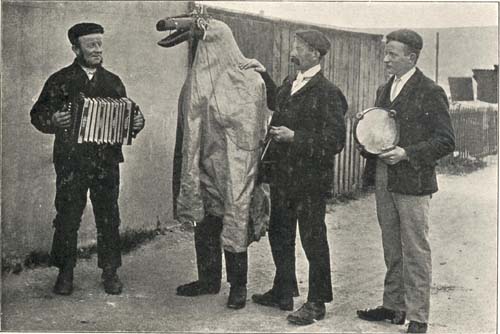
Now, whether Susanna Crow died specifically from fright is much debated and, in all probability, dubious. The story was likely sensationalised, but it still remains clear that there was some form of ban on hoodening, though whether that extended beyond the performers in question is unclear.
Whilst I have struggled to find extensive strong evidence for a full magistrate’s bylaw, there is still some nonetheless. However, whatever embargo was in place, as far as I can source there do not appear to be any records of it ever being formally repealed. In other words, the ban still stands.
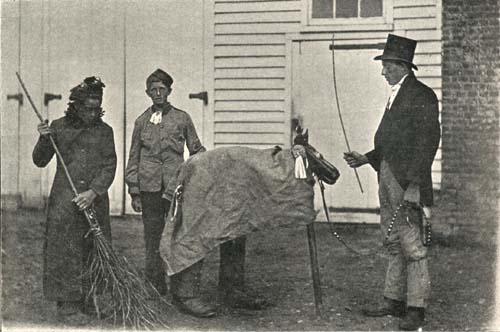
Every year, at Folk Week, I find it quite amusing that the hooden horses which gallop around the streets are technically breaking a Thanet law. Not that the police would be interested in arresting them; it is unlikely in this day and age that the sight of a hooden horse would cause anyone to have such a scare that they pass out – let alone anything worse – and even if there was an incident, I have every faith it would be dealt with in a completely different and much more appropriate way. A passing magistrate wouldn’t just immediately veto the practice.
Hoodening being kind-of-forbidden, at least locally, makes the continuing of the hooden horse tradition somewhat more deserving of respect, in my opinion. I love the idea of people defying a ban in order to bring joy. It does need to be recognised that there is a big difference between actual laws and legislation (which should and must be upheld) and ancient local prohibitions, and I would never advocate genuinely illegal activity. But the rebelliousness of the hooden horse is something I applaud.
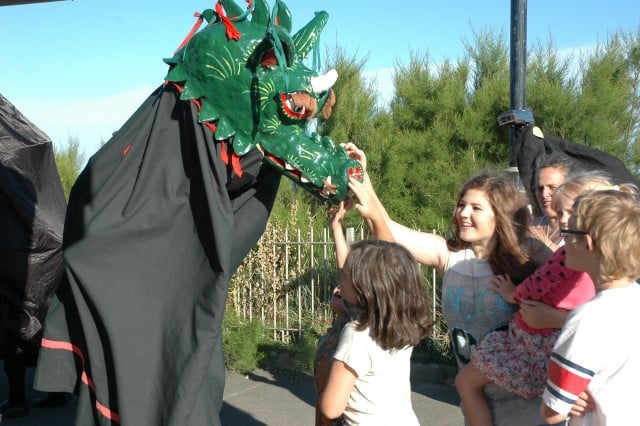
It’s so embedded in local culture that when a new pub was built near Westwood Cross and we, as the people of Thanet, were given the opportunity to name it, the result was not Pubby McPubface, but instead the East Kent Hoodeners successfully suggested to call it after this outlawed practice: The Hooden Horse.
As the advent calendar doors open, then, and the lights twinkle to a soundtrack of Wizzard and Slade, let us give thanks for the hooden horse performers and their disregard of the ban on hoodening, and allow their tomfoolery to bring smiles to our faces. Vive la résistance.

